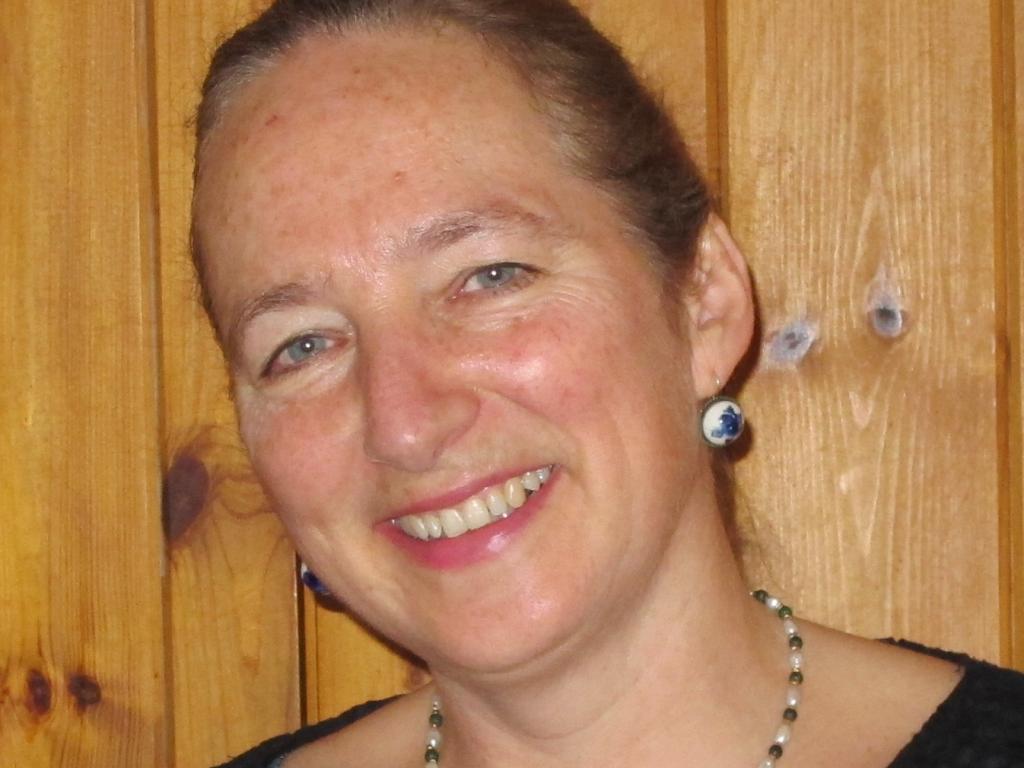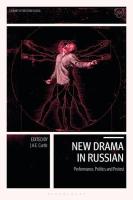
For her valedictory lecture, held on 11 June 2021, Professor Julie Curtis presented, and reflected upon, her most recent book, New Drama in Russian: Performance, Politics and Protest in Russia, Ukraine and Belarus. This volume, of which she is the editor, adds much to our understanding of the twenty-first-century phenomenon of ‘New Drama,’ a term which ‘characterizes a move away from the ‘well-made’ literary play of earlier times, towards a drama which draws upon the speech and the events of real life to represent the world in raw, authentic ways.’[1] The book questions our view about the periodisation of the movement — it argues that it was a phenomenon which lasted longer than commonly accepted, and continued in multiple ways throughout the second decade of our century — and its location — Russian-language drama thrived in Ukraine and Belarus, and not only in Russia.

As Professor Curtis highlighted, the book gathers together an international cast of scholars and practitioners and thus reflects a feature of New Drama that several of the articles in the study underline: dialogue across national boundaries between audiences, playwrights, and directors of theatrical productions. There are several multi-dimensional features of this study: it includes interviews with directors and dramatists, alongside chapters about the political and legal landscapes in which works were written and staged; it also includes more future-oriented pieces which provide predictions about the fate of this artistic development over the coming years.
The most important element to bear in mind when watching and reading works of New Drama, Professor Curtis highlighted, is the political: playwrights react to the various political events happening around them in their works whilst also being subject to the — often — negative consequences of these very events. Despite the seismic shifts in the socio-political terrains of the countries in question, the volume stresses that the creativity of playwrights and theatre directors was not stifled, and that New Drama developed down fresh and unexpected paths.
When reflecting upon the genesis of the volume, Professor Curtis emphasised various forms of cooperation: the book arose from interdisciplinary and inter-institutional projects that took place over the past ten to fifteen years. Thanks and acknowledgements were expressed to past and present undergraduate and graduate students as well as colleagues from the UK and abroad.
Over the past thirty years spent teaching Russian literature and language, Professor Curtis has influenced generations of students and academics in the Russian sub-faculty, the Faculty of Modern Languages, and in the numerous colleges at which she has taught. A world-renowned scholar of Mikhail Bulgakov and Yevgeny Zamyatin, Professor Curtis has warmly and enthusiastically shared her passion for Russian culture throughout the university. New Drama in Russian is testament to these observations, since several of her former and current students played vital roles in the various projects behind the book.
You can watch Professor Curtis’ valedictory lecture here.
[1] New Drama in Russian: Performance, Politics and Protest in Russia, Ukraine and Belarus, ed. by J. A. E Curtis, 2020, p. 2.